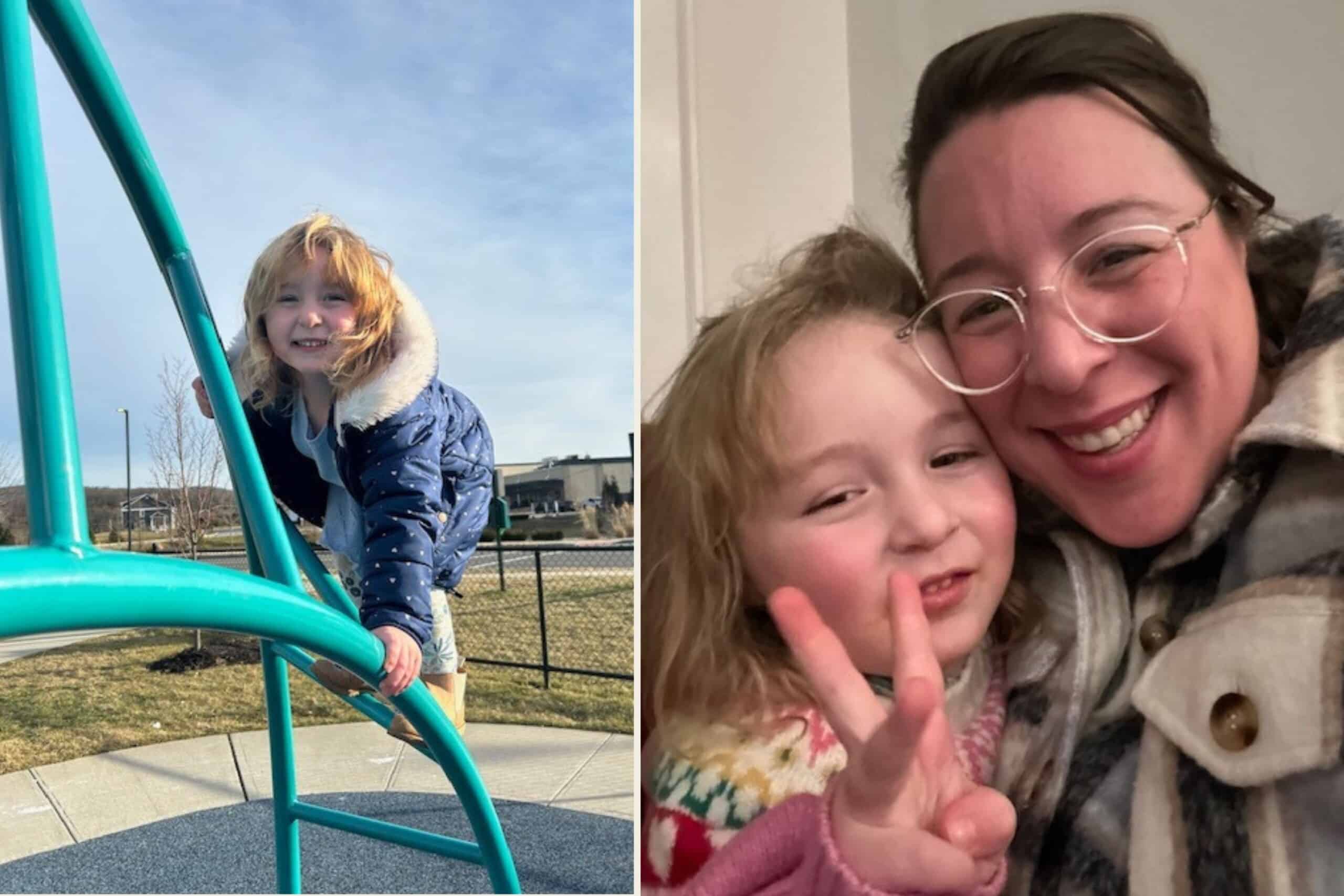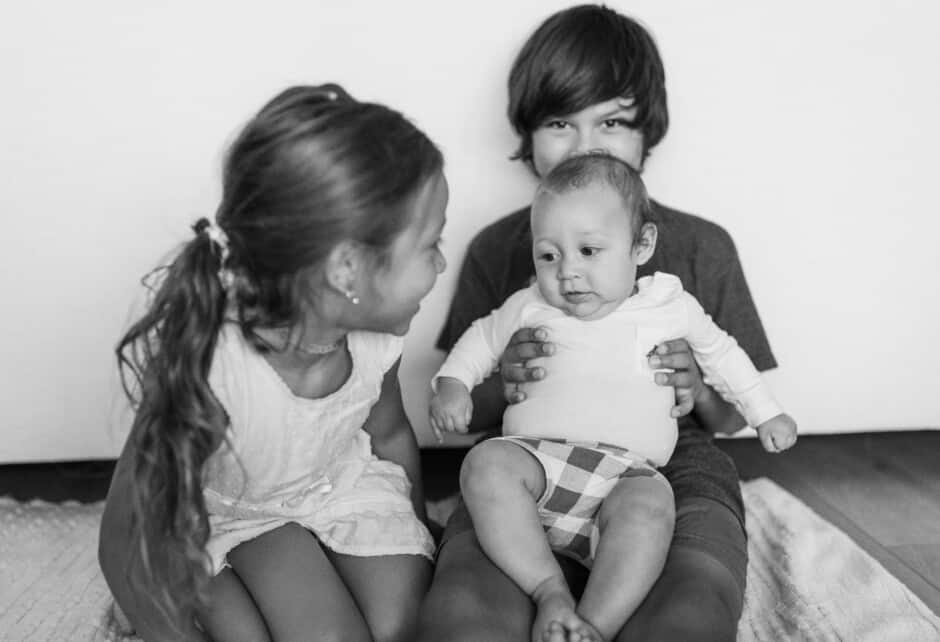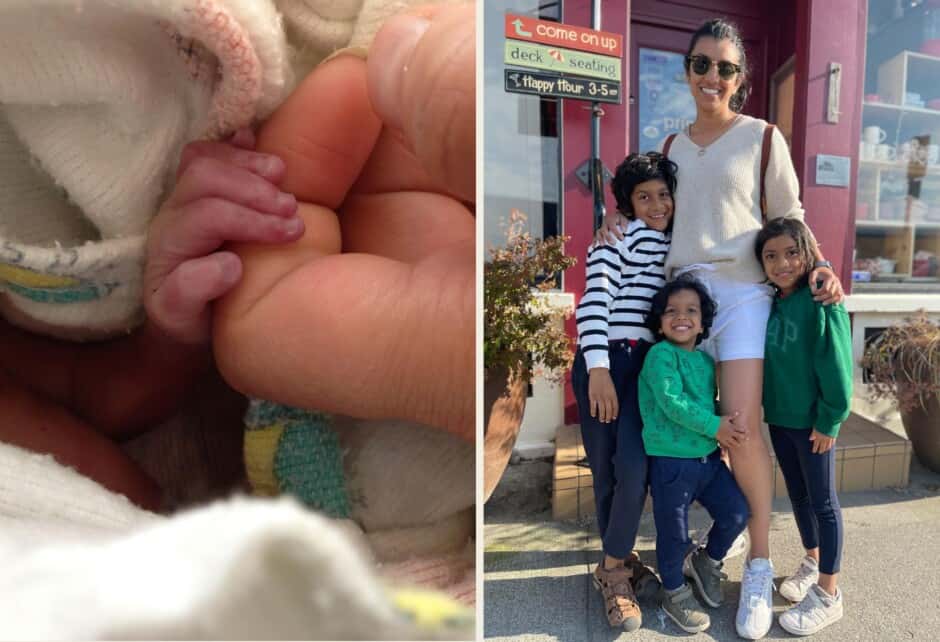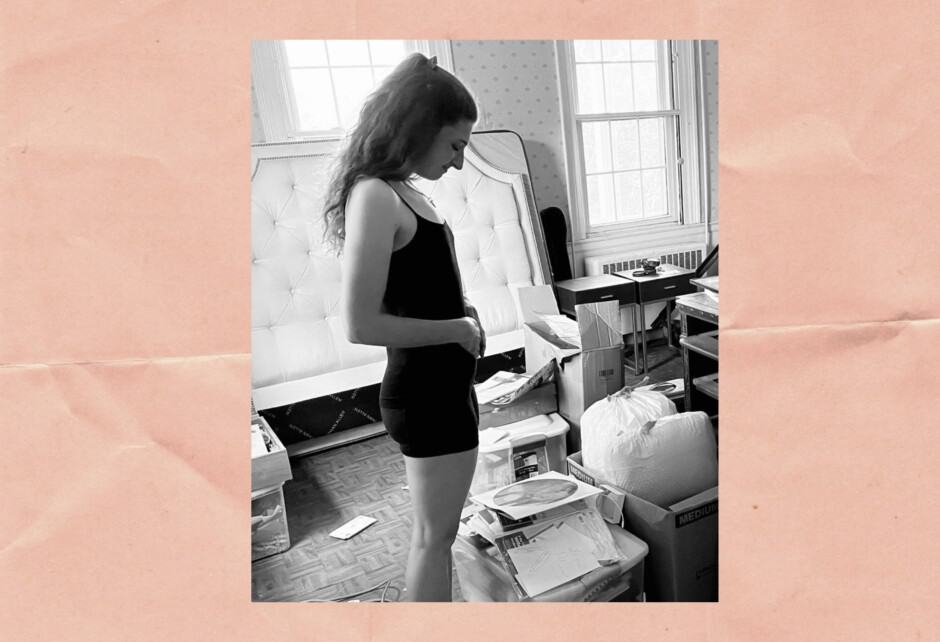
Postpartum depression is different for every person who experiences it. In the case of New Jersey-based writer and mom Loren Kleinman, her depression lead to a psychiatric emergency when she was just a month postpartum with her daughter, Lily (now 4). Even if postpartum depression is not something you’ve dealt with, her deeply personal story is something we think every mother can relate to.
Life before Lily was a hazy blend of ambitions, dreams, and snapshots of what motherhood would look like: quiet nights with lullabies and nursery rhymes, afternoons filled with smiles, and the unmatched joy of watching my baby girl take her first steps. In reality, it was painful. She never slept, and each time I tended to her, my skin pulled at the site of my C-section. My hands were still swollen from my pregnancy-induced carpel tunnel syndrome and whenever I breastfed her, they became numb and tingly.
I wished her away several times a day, even Googling: How to put your newborn up for adoption? Despite these feelings, I was physically drawn to her. An enigma that I couldn’t fathom.
After Lily, I felt out of place in my own skin. I constantly worried whether I could get through the first year of our lives together. I couldn’t decide whether this tiny person who was tugged out of me was here to torment me or fill me with love.
One month postpartum, I shared my anxieties with my OB. She attributed my struggles to the baby blues and handed me a pamphlet detailing the signs of Postpartum Mood and Anxiety Disorder. Dismissing my concerns, she sent me home, expecting improvement over time. Yet, as the physical pains began to subside, the emotional abyss of postpartum depression gripped me tighter.
The whispers of depression became a constant companion, taunting me with insecurities. “You’re an unfit mother,” it hissed, “You’ll never love her, and she’ll never love you.” My only escape was to end my life.
Two months postpartum, on October 30, 2019, after a failed suicide attempt and at the desperate pleadings of my husband Joe, I voluntarily admitted myself to the Hackensack Medical Center Psychiatric Unit.
The night before, I took a handful of Klonipin and Tylenol like the Internet said, but nothing happened. Instead, I wobbled to Lily’s bassinet and watched her sleep. I wished I could crawl in beside her, close my eyes, and never wake up. I wanted so badly to die. I wanted to let her have the life she deserved—a life without me.
“I don’t want to go up there,” I begged Joe as I relinquished my wedding band, cell phone, and clothes to the attending nurse. “But I can’t do this anymore. I can’t be a mom.”
“You’re doing the right thing,” he said. With his dimpled smile, I knew he was trying his best to keep hope alive.
I hung my head below my shoulders. “I’m not the person you married.”
“I have to get back to the baby,” he said. “We’re all going to be ok.”
He took my bag of valuables from the nurse. “Get some rest.”
By the time I got a room in the unit, I’d already been in the ER by myself for 12 hours. It was early morning, 3am-ish. My psyche-mate was already asleep. I felt alone and humiliated that it had come to this.
My first full day at the psychiatric unit marked two months since Lily’s birth, coinciding with Halloween. Her first holiday and her two-month birthday slipped away without me. I missed her, but I didn’t understand why. A hole seemed to deepen inside me the longer I was away from Lil.
At the same time, I disliked her: the feedings, the inconsolable crying. But then I remembered the quiet mornings when we’d hold each other’s gaze. I never wanted and not wanted anyone so much.
Everything felt inverted. Even my name was reversed on my hospital bracelet: Kleinman Loren.
Joe visited often, bringing books and pictures of Lily—the only outsider things allowed in the unit. Babies weren’t.
As we occupied our small space in the vastness of the activities room, the nurses’ watchful eyes bore into us. In a psych ward, privacy is a luxury. Even in our rooms, the bathrooms were door-less, just a long curtain separated my roommate and me.
“I’m missing it all,” I whispered, surprised by my own admission. “All I want is to leave this place.”
“Focus on getting better, not on leaving,” he whispered back. “We’ll still be here.”
I resented Joe and the hospital. A murky fish tank illuminated the room with its day-glow radiance. Fluorescent light made everything shine. The floors, the shower, the people. It rendered the day sterile. I imagined Joe and I freely leaving amid a round of applause in the rec room. The doors would open, and we’d be on our way to our baby girl.
The following day, Joe accompanied me for a family visit with my psychiatrist, Dr. Hirsch, and my social worker.
Dr. Hirsch proposed discharging me right away, a notion Joe rebuffed. Despite reassurances from Dr. Hirsch about my stable condition, Joe questioned how much time he’d genuinely spent with me.
Joe’s insistence on my prolonged stay infuriated me, triggering my ire to the point where I demanded a divorce. His eyes welled up at my outburst.
Joe posed a direct question: “What keeps you from wanting to end it all now?”
“I miss my family.”
While he said it was a good start, it couldn’t be the sole reason. I hoped he’d realize the anguish of being separated from our family was gnawing at me, that my desire for life stemmed from my longing for my old life.
But that didn’t suffice for him. My emotions were still all over the place. One day I wanted to go home; the next, a huge burden of responsibility lifted from my shoulders knowing I was here.
I agreed to stay two more days.
When Joe left, he promised to return after dinner. But soon into my meal, a note arrived. He was too exhausted to drive.
The nurses asserted that I would leave well-rested and prepared to be a good mom. This perplexed me since Joe said I’m already a good mom by agreeing to stay at the hospital.
In group therapy, I began to slowly unravel the complexities of my depression. How the deep and consuming love for my baby coexisted with my seemingly bottomless anxiety and fear. How the dull ache of exhaustion and sleep deprivation made every feeling of wanting to escape ten times more intense.
When Joe came to visit again his eyes were red and his smiles less frequent. His jovial nature seemed to be overshadowed by the weight of our situation. I found myself yearning to comfort him, to reassure him that I was on the path to recovery. But I couldn’t. The guilt of putting our family through this was still raw.
When the day of my discharge came, I felt a rush of emotions. The walls of the hospital, initially so cold and sterile, were now something I was scared to leave.
The house was as I’d left it: quiet and loud. The ticking of the baby swing next to a messy pile of baby clothes and distant hum of a full dishwasher played on repeat. Time can be in freefall, but it was as if it were waiting for my return.
When I held Lily, her tiny form in my arms and soft breath against my chest brought a rip tide of emotion—powerful, relentless, and utterly overwhelming. A painful concoction of joy, relief, love, and fear. As I studied her tiny fingers wrapped around mine, I was struck by the fragility of the moment.
I started crying. I cried because I was sad. I cried because I was happy. I cried because I was scared. I cried because I was tired. I cried because I wanted to be alone and because I didn’t want to be alone.
As I sat there with Lily in my arms, Joe massaged my shoulders. “It’s okay,” he whispered.
Through therapy, medication, and time, my bond with Lily grew. Despite recognizing that my depression wasn’t something I inflicted upon her, I felt the need to apologize. I felt the weight of the missed bath times, feedings, diaper changes, and playtimes. Moreover, I felt remorse for considering her a mistake in my worst moments and proposing she and Joe move while I sorted myself out.
There were days, even after my hospitalization, when I found myself questioning my worth, my strength as a mother. I was learning, however, slowly, and painfully, that my struggle wasn’t a testament to my failure, but to my humanity. My postpartum depression wasn’t a sign of weakness, but a manifestation of an illness as real as a broken bone.
Before my hospitalization, I’d often questioned whether I loved Lily.
I once asked my sister, a mother of two: How do you know when you love your child?
“You’ll feel like your heart is about to explode,” she said.
I feared I’d never know what that was like.
Almost four years later, it’s like I’d always been at home with Joe and Lily—like I’d never been sick.
But it did happen, and when the conversation came up recently with Joe about having another baby, I quickly said, “No.” Even with the most well-intentioned postpartum plan, I might not survive next time.
I’ve made peace with postpartum depression, but it didn’t teach me about personal strength and resilience. It taught me about powerlessness. I couldn’t recognize this depression on my own. I needed Joe to help me recognize it.
Share this story



